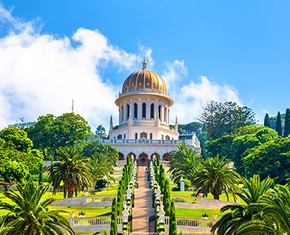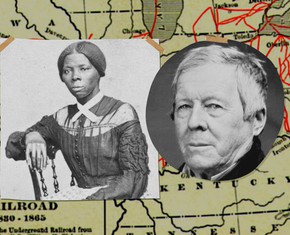The views expressed in our content reflect individual perspectives and do not represent the authoritative views of the Baha'i Faith.
Religions begin when a prophet first announces a new revelation, just as Christ did to John the Baptist or the Buddha did to his first two disciples, Trapusa and Bahalika.
That’s how religions are always born—a messenger of God receives a revelation and begins to share the new and yet ancient wisdom with others. The prophet’s message spreads, people follow it, and the revelation creates an entirely new reality, upending the old ways and eventually altering entire civilizations.
In that exact same way the Bab, the young herald of the Baha’i Faith and the founder of its revolutionary precursor the Babi Faith, declared his mission on May 22, 1844 to a young seeker named Mulla Husayn.
Just six years and six weeks later, on July 9th, 1850, the Bab would die in a hail of bullets from a huge firing squad, summarily executed by a Persian government that feared the potent power of the Bab’s message, the stunningly rapid growth of his new Faith, and the sacrificial devotion evinced by tens of thousands of his followers.
Baha’is believe that the Bab–a title which means “the Gate”–opened the way for the eventual establishment of the unity of humanity. So who was the Bab, whose declaration people all around the world celebrate today?

The Bab was Siyyid Ali Muhammad, born in Shiraz, in the province of Fars, Persia in 1819. (Siyyid means “descended from the lineage of the prophet Muhammad”) Born into a family of merchants and traders; raised by his maternal uncle after the premature death of his father in 1826; a mystic descended from many generations of mystical Sufis; known from childhood for his wisdom, intelligence and humility; the Bab inaugurated a movement comparable only to the birth of Christianity:
The passion of Jesus Christ, and indeed His whole public ministry, alone offer a parallel to the Mission and death of the Bab, a parallel which no student of comparative religion can fail to perceive or ignore. In the youthfulness and meekness of the Inaugurator of the Babi Dispensation; in the extreme brevity and turbulence of His public ministry; in the dramatic swiftness with which that ministry moved towards its climax; in the apostolic order which He instituted, and the primacy which He conferred on one of its members; in the boldness of His challenge to the time-honored conventions, rites and laws which had been woven into the fabric of the religion He Himself had been born into; in the role which an officially recognized and firmly entrenched religious hierarchy played as chief instigator of the outrages which He was made to suffer; in the indignities heaped upon Him; in the suddenness of His arrest; in the interrogation to which He was subjected; in the derision poured, and the scourging inflicted, upon Him; in the public affront He sustained; and, finally, in His ignominious suspension before the gaze of a hostile multitude—in all these we cannot fail to discern a remarkable similarity to the distinguishing features of the career of Jesus Christ. – Shoghi Effendi, God Passes By, pp. 56-57.
On this day, Baha’is believe—a few hours after sunset on May 22, 1844—a new era of faith began, a renewal of the eternal promise of religion itself. Soon many thousands became followers of the Bab, who abrogated the laws of the past and declared that he had come to pave the way for another prophet of God, the Promised One of All Ages, who would found a universal and unifying world religion.
Historians who study the enormous societal transformation the Bab initiated often remark on the virulent persecution his message engendered:
The fire of His eloquence, the wonder of His rapid and inspired writings, His extraordinary wisdom and knowledge, His courage and zeal as a reformer, aroused the greatest enthusiasm among His followers, but excited a corresponding degree of alarm and enmity among the orthodox Muslims. The Shi’ih doctors vehemently denounced Him, and persuaded the Governor of Fars, namely Husayn Khan, a fanatical and tyrannical ruler, to undertake the suppression of the new heresy. Then commenced for the Bab a long series of imprisonments, deportations, examinations before tribunals, scourgings and indignities, which ended only with His martyrdom in 1850 … In consequence of these declarations of the Bab and the alarming rapidity with which people of all classes, rich and poor, learned and ignorant, were eagerly responding to His teaching, attempts at suppression became more and more ruthless and determined. Houses were pillaged and destroyed. Women were seized and carried off. In Tihran, Fars, Mazindaran, and other places great numbers of the believers were put to death. Many were beheaded, hanged, blown from the mouths of cannon, burnt or chopped to pieces. Despite all attempts at repression, however, the movement progressed. – Dr. J.E. Esslemont, Baha’u’llah and the New Era, pp. 14-16.
Abdu’l-Baha described the Declaration of the Bab and the sacrifices his followers made in a speech he gave in the United States on the anniversary of the Bab’s declaration:
On this day in 1844 the Bab was sent forth heralding and proclaiming the Kingdom of God, announcing the glad tidings of the coming of Baha’u’llah and withstanding the opposition of the whole Persian nation. Some of the Persians followed Him. For this they suffered the most grievous difficulties and severe ordeals. They withstood the tests with wonderful power and sublime heroism. Thousands were cast into prison, punished, persecuted and martyred. Their homes were pillaged and destroyed, their possessions confiscated. They sacrificed their lives most willingly and remained unshaken in their faith to the very end. Those wonderful souls are the lamps of God, the stars of sanctity shining gloriously from the eternal horizon of the will of God. – The Promulgation of Universal Peace, p. 138.
Baha’is rejoice and celebrate every year on the anniversary of the Declaration of the Bab, which sounded the great call for the unity of all peoples, cultures, nations and religions:
Know thou that first and foremost in religion is the knowledge of God. This attaineth its consummation in the recognition of His divine unity … – The Bab, Selections from the Writings of the Bab, p. 117.
New religions begin when a prophet of God receives a divine revelation—a mystical transference of inspiration, knowledge and spiritual power from the Creator. With Buddha, with Abraham, with Jesus, with Muhammad, with the Bab and Baha’u’llah, this same basic pattern took place. Each of those prophets opened the path to a new level of human consciousness. Baha’is all around the world believe that the Bab brought into being the means for the eventual establishment of the unity of humanity.
You May Also Like
Comments

















It is more precise, and therefore better, to write: "The Declaration, by the Bab, of his prophetic Mission", instead of: "Declaration of the Bab".
Thank you for your wonderfule site.
Warm Regards, Rochan MAVADDAT.